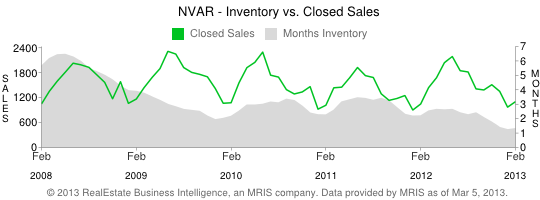Original Article From HouseLogic.com
By: Dona DeZube
Published: October 12, 2012
Feds try to punish states that slowed the foreclosure process because of robo-signing.
Location is often the most desirable thing about a property. But next year, where you live might cost you more if you get a new mortgage.
The Federal Housing Finance Agency wants to raise mortgage origination costs in Connecticut, Florida, Illinois, New Jersey, and New York – states that put the brakes on the foreclosure process a couple of years ago in the wake of the robo-signing scandal.
FHFA, which oversees mortgage giants Fannie Mae and Freddie Mac, would charge lenders extra fees (between 15 and 30 basis points on Fannie and Freddie loans) in those states.
Although the robo-signing scandal started in Florida (at a Florida law firm hired by Fannie Mae), it spread nationally. Some states responded by making it harder for lenders to foreclose, which also makes it more expensive to foreclose. FHFA wants to charge lenders higher fees in those states to cover those higher costs.
Here’s what the lenders would have to pay:
•Illinois: 15 basis points
•Florida, Connecticut, and New Jersey: 20 basis points
•New York: 30 basis points
And, of course, the fees would get passed on to consumers, most likely in the form of interest.
What would it cost me?
To figure out how much more you’d pay in interest, divide the fee by five, FHFA said. In New York, the 30 basis point fee would translate into a 6 basis point interest increase (30 divided by 5); for example, 3.06% when the market rate is 3% for a mortgage. Borrowers in Illinois would pay 3 basis points more (15 divided by 5), and Connecticut, Florida, and New Jersey borrowers would pay 4 basis points more (20 divided by 5).
The increased fees would raise monthly mortgage payments on a $200,000, 30-year, fixed-rate mortgage in those states between $3.50 and $7.00 a month, FHFA estimates.
Is it fair?
Officials in the five states and some members of Congress said the FHFA’s actions were meant to force states to change their foreclosure laws, to make it quicker and easier to foreclose when home owners don’t make their payments.
One of the reasons foreclosures take so long in some of those states is because officials in those states made lenders go back and double-check their paperwork after discovering attorneys working on Fannie Mae foreclosures routinely rubber-stamped or just flat-out made mistakes on their paperwork.
“It’s hard to see this as anything other than bullying states that are protecting home owners from foreclosure abuses,” said U.S. Rep. Brad Miller (D-N.C.). “If Fannie and Freddie properly underwrite new mortgages and have decent servicing, the cost of complying with state foreclosure laws cannot credibly justify an increase in the g-fee. FHFA has no business holding a state’s new mortgage market hostage to extort weaker home owner protections for existing mortgages.”
FHFA, meanwhile, argues that the five states are “clear outliers” that set up expensive road blocks for lenders who want to take back homes from home owners who don’t make mortgage payments. By charging extra for home loans in those states, Fannie and Freddie will make sure home owners in other states don’t have to cover those higher costs.
FHFA is looking for comments on the issue, so let me share mine. Fannie and Freddie (along with FHA (http://www.houselogic.com/home-topics/fha/) ) were pretty much the only source of mortgage money during the housing crisis. We need them (or a replacement organization very much like them) if we’re going to have mortgage money around during the next dip in the real estate market cycle.
Meanwhile, politicians aren’t delving deep on housing issues, including foreclosures or what they think Fannie Mae and Freddie Mac should do going forward, so voters have no firm idea where the candidates running for office in November stand.
Combine that lack of interest in discussing housing with the current gridlock on Capitol Hill, and it’s not surprising that FHFA is stepping into that leadership void to try and squeeze borrowers in those five states to make more profit for Fannie and Freddie and not make everyone pay more.
You can also share your thoughts about the proposed fee by sending an email to FHFA (mailto:gfeeinput@fhfa.gov) by Nov. 18, 2012.








